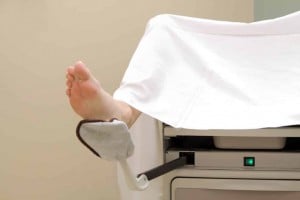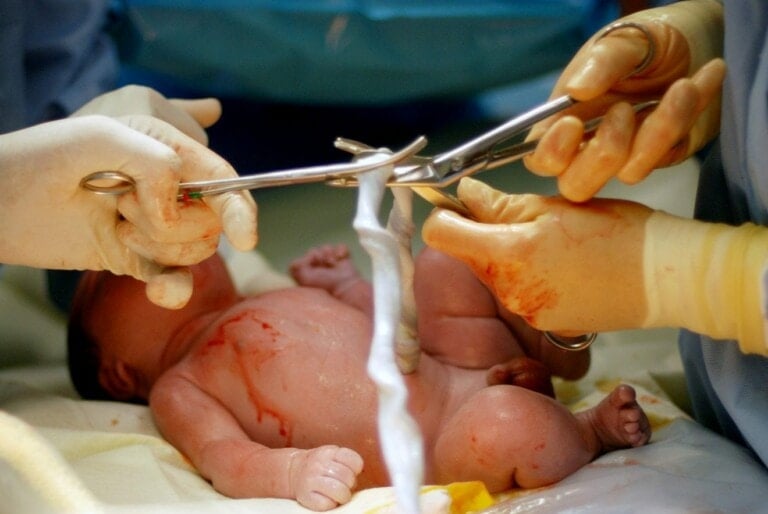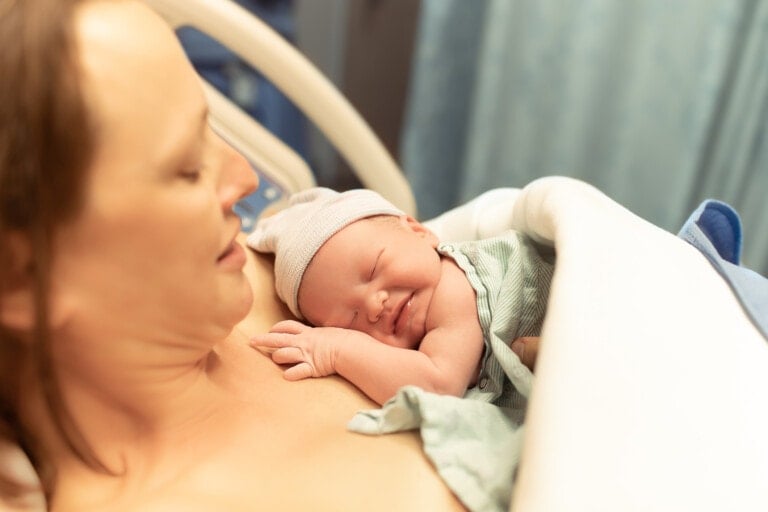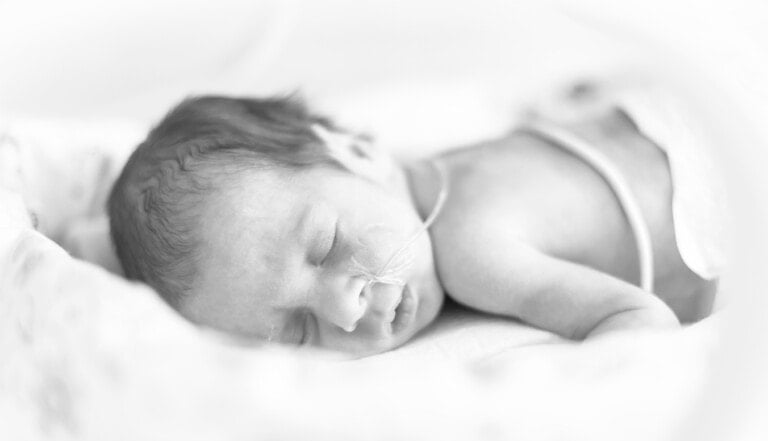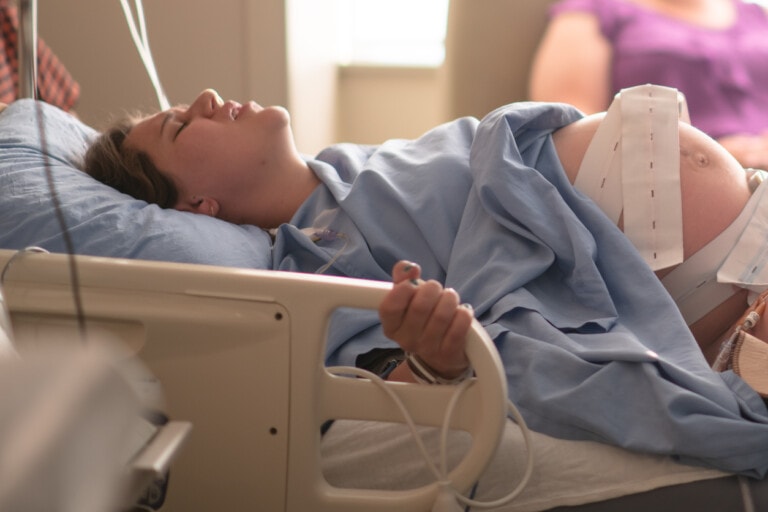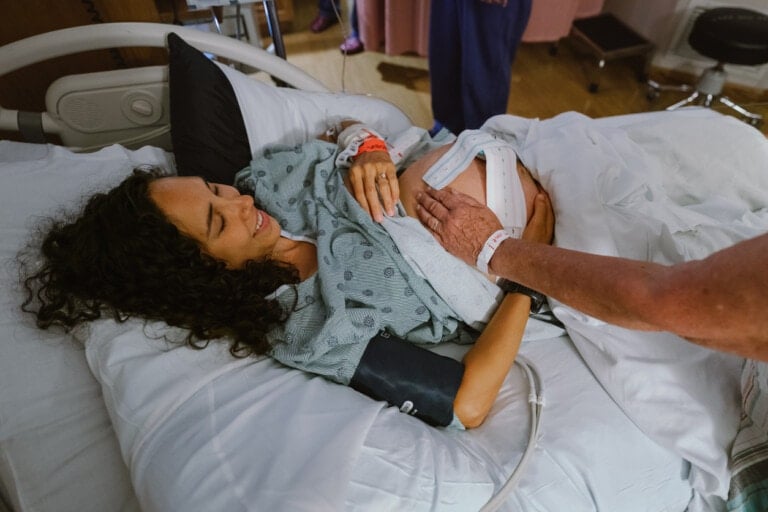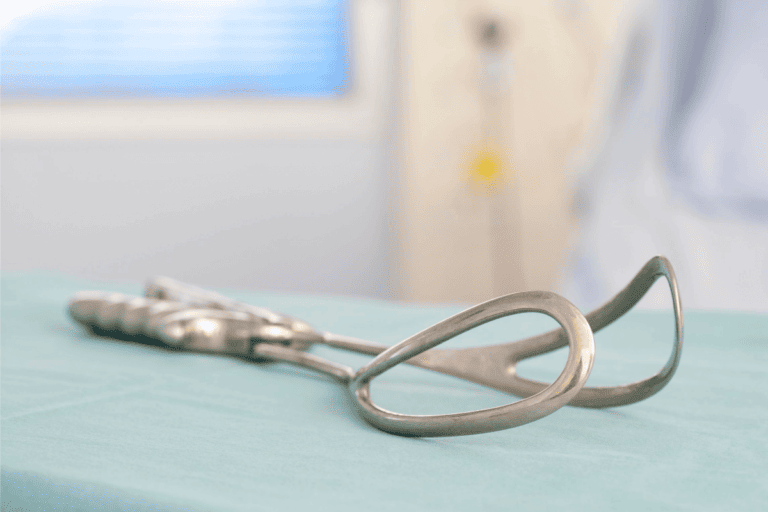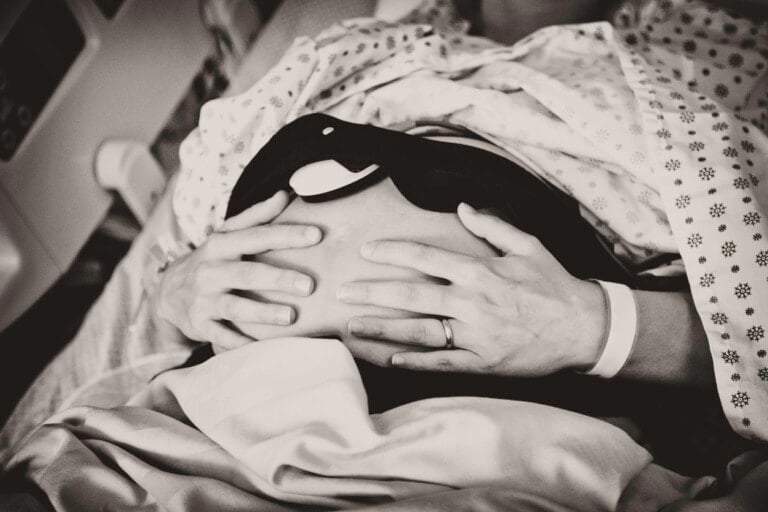Now that you’re pregnant, it’s time to think about how you want to give birth to your baby. Several options are available to you: natural birth, medicated birth (analgesics or anesthetics), or cesarean delivery. Today, more and more women claim to want a natural (unmedicated) childbirth because of all the benefits for both mom and baby.
You may have even considered a natural birth for yourself. Many women choose medication because they are unsure if they can handle labor pain. Well, there are lots of different approaches to laboring without pain medication. So, in this article, I’ll outline several reasons why you may want to try this delivery method!
12 Reasons To Consider Having a Natural Birth
If natural childbirth is something you’ve been considering but haven’t decided on yet, here are 12 fantastic reasons to give it a try:
1. Freedom of Movement
With a natural, unmedicated birth, you have the freedom to move, which is excellent! Movement during labor is your friend. Gravity is helping you bring your baby down.7 You can try many different positions to cope with each contraction and get the baby in a better position for (hopefully) a quicker delivery!8
Otherwise, if you choose to have an epidural for your labor and birth, you are choosing to confine yourself to the bed.8,10 Your medical team will not allow you to leave the hospital bed. This is because you will not have the necessary strength or control of your legs.9,10 Here’s more information about epidurals to help you decide:
How an Epidural Works
With an epidural:
- Your nurse will give you a bladder catheter so your bladder can empty on its own.10
- You will have external monitors to see how your baby is “handling” labor. We don’t want your baby to be in distress. Or you may have internal fetal monitoring if your water has already been broken and your baby has already shown signs of distress.11,12
- You will be given an IV to receive fluids and any other medications you may need.13,15 It’s also common to receive Pitocin since an epidural can potentially slow down your natural contractions.14
- You will wear a blood pressure cuff to check your blood pressure every 15 to 30 minutes.15
An epidural numbs the lower half of your body, and you can’t move since many different things are tethering you.8 The positions available to you are lying on your right side, lying on your left side, and sitting straight up. However, if your baby is not tolerating one side well (their heart rate becomes too high or low), you may have to lay on one side for the remainder of labor.13 The only possible pushing positions are lying flat on your back (with or without stirrups) or pushing on your side. If you want more freedom of movement, a natural birth may be a better choice for you.
2. More Control of Your Birth
If you decide to have a natural birth, there are more options available to you. And with more options, you may feel like you get to be more of a participant in your labor. You have options to relieve discomfort/pain, such as:16,17
- Massage
- Counter-pressure
- Hydrotherapy
- Hypnotherapy
- Music
- Movement
- Visualizations
- Different positions like the birth ball, peanut ball, or walking the halls
- Hot and cold therapy
Unlike in natural childbirth, when you choose to have an epidural, you have a higher chance of needing more interventions, also known as the cascade of interventions.1 These include breaking your water, Pitocin, antibiotics for low blood pressure, internal fetal monitoring, vacuum, forceps, episiotomy, and/or cesarean, and more.1,15 What once was a choice made for your comfort can potentially become a snowball rolling down a hill. It can turn into more medically necessary interventions you wish never needed for your baby’s birth.
3. May Reduce Chances of a C-section or Other Interventions
I always tell my clients that the baby determines how they want to be born. They may be all tangled up in their cord, they may be breech, you may have placenta previa, etc. Some things that medically require a C-section are unavoidable, which is okay. However, there are things you can do to help your chances of avoiding a C-section.
An excellent first step is trying for a natural childbirth. When labor is allowed to progress on its own and in its own time frame, and the woman is allowed to respond naturally to what she is experiencing, I’ve seen that most labors tend to go more smoothly and need fewer interventions. Of course, these are low-risk women who have had normal pregnancies. In my opinion, the more we mess with the laboring woman, the more things get messy. But when we allow her body to do what it was made to do, support her, and comfort her, fewer interventions are needed.
4. Potentially Shorter Labor and Pushing Time
When you have an epidural, you should not be able to feel pain, and though you may feel contractions, they should not hurt.8,13,18 This is the point of an epidural; it keeps women more comfortable! Sometimes, an epidural can speed up labor, allowing a woman’s cervix to dilate quickly because her body can finally relax with the contraction.13 Other times, an epidural can slow things down by slowing the contractions.18 The problem with not being able to feel what’s going on with your body is you can lose your instincts on how to help your body and labor progress, like walking, rocking, squatting, or changing positions.13 These help your baby descend deeper into your pelvis, which can help speed up labor.19
When it’s time to push, many women can push more effectively without an epidural. This is because you can feel the urge to know where and how to push. Women with epidurals may not have that urge, complete control, or the strength needed to push their baby out because their lower body is numb.8,13,20 This is why I suggest women turn down the epidural while pushing. This will help them feel that they are pushing well with each contraction.
5. A Faster Recovery
When a woman has a natural birth, she may feel better almost instantly after it’s over. She can get up and move around shortly after delivery or whenever she is ready.8
But after you give birth with an epidural, it takes time for the medication to wear off and for you to be able to get up and move around.9 Some women experience what are known as “spinal headaches” after having an epidural.21 Another common side effect of an epidural is the body can start itching during and after labor.8,10 Some women also have issues in their lower back where the epidural was placed for weeks/years.22 (Read more about women sharing their experiences with epidurals.)
It’s important to remember that having a cesarean is major abdominal surgery.23 A C-section can make it more challenging to care for your baby in the first few weeks postpartum. This is because you’re also recovering from cesarean surgery.23 A natural birth gives you and your baby the best chances for a speedy recovery.8
6. Chance To Experience Real Labor
I love the quote, “There is a secret in our culture, and it’s not that birth is painful. It’s that women are strong.” from Laura Stavoe Harm. It’s so true. The labor experience is not just about experiencing pain. It’s about learning what our bodies can do and knowing what we are capable of.
Unlike some medical professionals say, labor controlled and maintained by Pitocin is not the same as your natural contractions.24 Your medical team may claim that Pitocin emulates the same results and patterns as your natural contractions. However, after speaking with countless women who have had Pitocin for one labor and none for subsequent births, these women say that is not the case. Every woman I spoke with said Pitocin makes the pain of contractions much more intense and much stronger than your natural contractions.
7. A More Alert Baby
A big reason to try for a natural childbirth is that your baby can avoid the side effects of pain medications. By avoiding systemic analgesic pain medications, such as an epidural and general anesthesia, your baby will be born more alert and more active than babies who have been exposed to medications.2 Opioids used in systemic analgesia, epidurals, and general anesthesia can affect your baby’s breathing and heart rate for a short time.2 Your baby may be drowsy and have reduced muscle tone, making it harder to breastfeed in the first hours after birth.2
8. Fewer Complications for Mom and Baby
Even though severe complications from pain relief medications are extremely rare, they can happen. Pain medications can lower your blood pressure and your baby’s, cause respiratory depression for mom and baby, potentially slow down your labor, and make you feel nauseous or dizzy.3,8 Using medications during labor may add risks otherwise not present at birth. Having a natural birth decreases your chances of experiencing these issues.
9. A More Satisfying Birth Experience
No matter how their baby is born, women are overjoyed when they can finally see their new babies. I support women having the birth they want, no matter what that looks like. Their labor and birth are about them, their baby, and what will make them happy.
From my 11 years of experience supporting women as their doula, I have found that women are the most satisfied with their birth experiences when there are fewer complications or no emergencies. We cannot always control what our bodies will do in labor. However, avoiding as many unnecessary interventions as possible helps decrease our chances of experiencing a cascade of interventions. This can help us reduce avoidable emergency situations. When comparing women who have had non-emergency deliveries versus emergency deliveries, those who had emergency deliveries had about twice the risk of developing postpartum depression.4
10. Breastfeeding Is Easier and More Successful
Babies who are not exposed to pain medications are more alert after birth, which helps them be more successful with initial breastfeeding.5 They can latch better and feed longer. When you don’t have those opioid medications in your system, you also have an easier time. If you are on heavy medications, it’s hard for your body to understand that it’s time to make milk.6
11. Increases Your Confidence
Preparing for a natural childbirth involves empowering yourself as a new parent. You learn what not to do during labor and how to say no. You learn how to be your own advocate, educate yourself on the labor and delivery process, and stand up for yourself and your wants and desires. It doesn’t mean you become rude or pushy. It means you become more confident in your decision-making for yourself, your body, and your baby.
12. Why Not Try?
Most new moms wonder how bad the pain will be with natural birth and whether they will be able to handle it. But there is no way to know what your labor will be like, how much pain you will have, or whether you can handle it until you experience it. Even if you’re an experienced mom and have been through labor, every labor and birth is different. So, why not take some childbirth classes and prepare your body? Why not learn comfort techniques and give natural childbirth a try to see how it goes? If you are at a hospital, pain medications are always there and readily available if you need or want them. And if you are at home or a birth center, a hospital is close by. Why not give natural childbirth a try?
At the end of the day, you know what’s best for your body and your baby. But I hope this article was insightful and helped you understand why it’s a good idea to consider going the natural birth route. It may allow you to feel more in control, make breastfeeding easier, and help you avoid unnecessary interventions, to name a few.
















